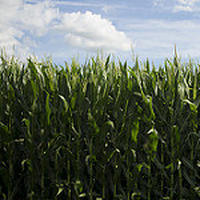Can We Feed 10 Billion People on Organic Farming Alone?

- 2016-09-08
- The Guardian
In 1971, then US Secretary of Agriculture Earl Butz uttered these unsympathetic words: “Before we go back to organic agriculture in this country, somebody must decide which 50 million Americans we are going to let starve or go hungry.” Since then, critics have continued to argue that organic agriculture is inefficient, requiring more land than conventional agriculture to yield the same amount of food. Proponents have countered that increasing research could reduce the yield gap, and organic agriculture generates environmental, health and socioeconomic benefits that can’t be found with conventional farming.
Organic agriculture occupies only 1% of global agricultural land, making it a relatively untapped resource for one of the greatest challenges facing humanity: producing enough food for a population that could reach 10 billion by 2050, without the extensive deforestation and harm to the wider environment.